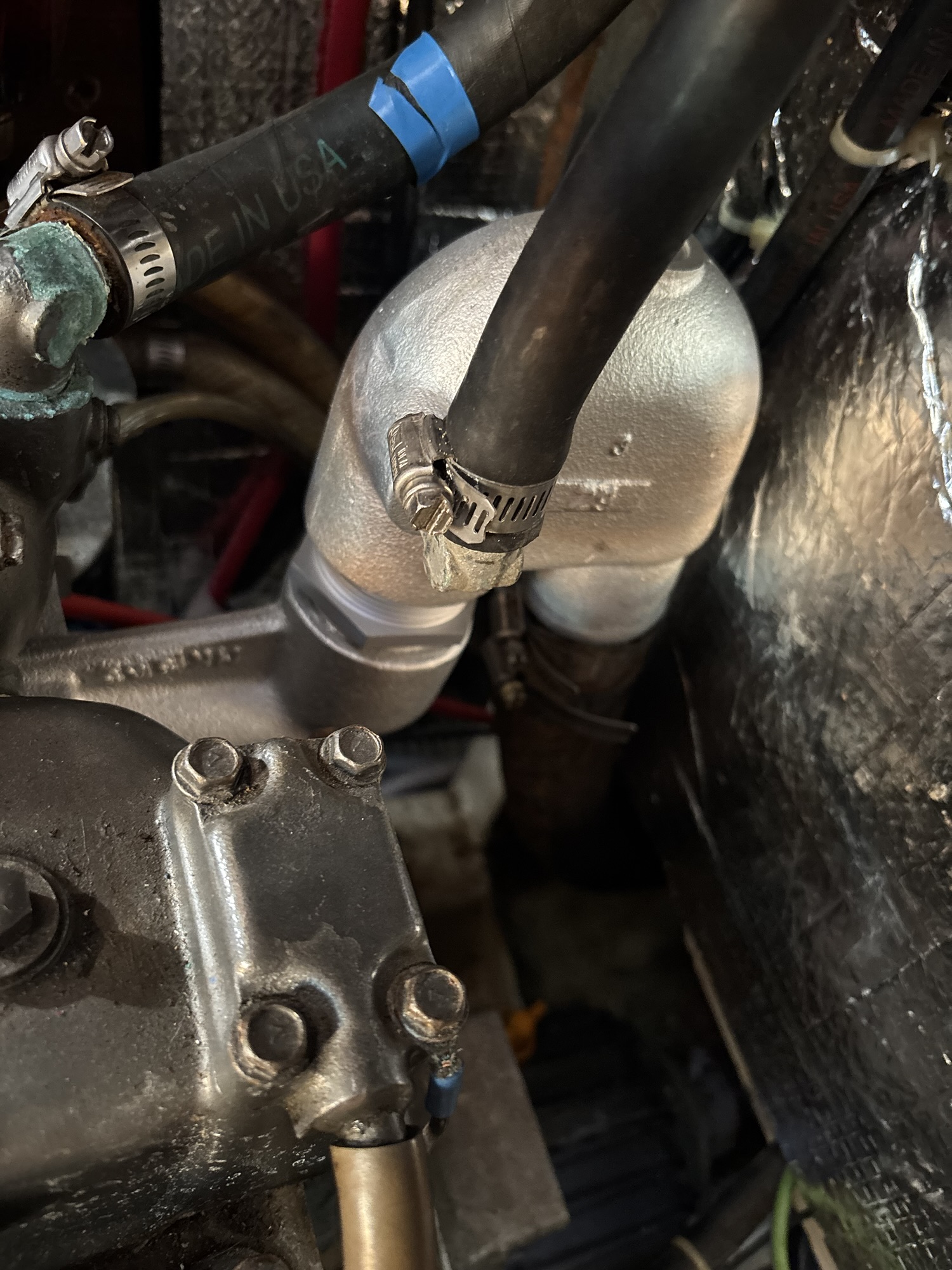Establishing Baseline Condition & Performing Initial Repairs
This week focused on systematically assessing the mechanical, electrical, plumbing, and structural condition of a 1990 Ericson 32-200. The goal was to build a clear technical baseline and begin addressing items that affect reliability, safety, and long-term offshore readiness.
The following summarizes key findings, diagnostics, and next steps.
1. Documentation, Identification & Compliance
1.1 Hull Identification Number (HIN)
Primary HIN confirmed on the starboard transom (ERY32915D090). Secondary “hidden” HIN not yet located (required by CA for registration verification). Inspection continues in typical locations: Under cockpit sole Inside cabinetry near major bulkheads Glassed into hull behind liners
1.2 Registration & COD
Vessel appears properly documented with USCG. Ongoing alignment between COD information and state requirements.
2. Plumbing & Sanitation Systems
2.1 Toilet System Backflow
Observation:
Toilet bowl was full of water after time away from the boat.
Technical Causes Identified:
Wet/dry selector left in wet mode. Intake seacock remained open. Vented loop location requires verification (height above waterline critical on Ericsons).
Corrective Measures Planned:
Store head with seacock closed + selector in dry. Inspect vented loop orientation and renew hoses as needed. Confirm survey recommendation: install or service the high vented loop between pump → toilet.
2.2 Holding Tank Vent
Hissing/bubbling traced to holding tank vent on the stern. Hose functions but will be replaced to reduce odor permeation per ABYC sanitation hose lifespan guidance.
3. Propulsion System – Yanmar 3GM30F
3.1 Dipstick – Not Located Yet
Dipstick not yet found despite multiple access attempts. The 3GM30F has two possible dipstick locations, only one active: Starboard low on block Port side beneath intake manifold Access is restricted by engine enclosure and adjacent structures.
Next Step:
Remove side panels, use inspection mirror, verify active dipstick tube, and proceed with full oil service.
3.2 Control Cables
Throttle, shift, and stop cables all exhibit high resistance. Replacement scheduled in line with 2023 survey recommendation.
3.3 Exhaust Riser & Mixing Elbow
Findings:
Existing cast-iron mixing elbow shows significant corrosion and staining. Threaded nipple connecting elbow to riser is seized.
Corrective Actions Underway:
PB Blaster applied (multi-day soak). Plan to remove elbow/riser assembly and extract nipple on bench. Stainless elbow selected as replacement component. Nickel anti-seize prepared for installation. Exhaust hose to be inspected during disassembly.
3.4 Cooling System Hoses
Blue-striped hose confirmed as part of cooling circuit/vented loop system. Further cleaning and inspection planned.
3.5 Alternator Wiring
One white connector with blue wire found unconnected. Likely for indicator lamp or sensing circuit. Wire will be traced and correctly terminated or capped.
4. Steering & Rudder Systems
4.1 Emergency Tiller Tube
Vertical tube under cockpit contains water. Determined normal for this Ericson design where the rudder tube extends to hull penetration.
4.2 Rudder Condition
2023 survey noted a crack/delamination on upper trailing edge. Visual inspection to confirm condition and evaluate whether additional work is required.
4.3 Steering Cables
Cables move freely but are dry. Plan to clean and lubricate sheaves and tension system.
5. Electrical System
5.1 Bilge Pumping System – Comprehensive Rebuild Needed
Survey findings confirmed during inspection:
Primary diaphragm pump operates manually only. Automatic/manual control switch unpowered. Rule 1500 submersible pump present but not wired or plumbed. Manual pump does not take suction. No strainer on any suction side. No vented loop on discharge. No high-water alarm.
Planned Rebuild Includes:
Dedicated fused feed for automatic/manual switch New float switch New high-water float + audible alarm Service or replace Whale manual pump Install intake strainers Install proper vented loop high under coaming Replace hoses and secure all clamps
5.2 Wiring Cleanup & Safety
Several dead-end wires and unlabeled conductors identified. Will be traced, labeled, or removed. Plan to reorganize DC panel backside wiring for maintainability and safety.
5.3 Shore Power
GFCI functional. ELCI + galvanic isolator recommended upgrade per ABYC E-11.
6. Electronics & Network Systems
6.1 Starlink Connectivity Issue
Symptom:
Speeds measured at ~0.03 Mbps.
Findings:
RJ45 Ethernet cable run to the external antenna appears degraded (sun exposure and outdoor routing). Starlink Ethernet adapter requires CAT5e/CAT6 certified cable.
Next Steps:
Replace with UV-rated outdoor CAT6 Add drip loops and proper strain relief Re-test throughput
7. Structural & Deck Systems
7.1 Chainplate Moisture
Areas of elevated moisture near chainplates noted in 2023 survey. Inspection ongoing; rebedding will be scheduled.
7.2 Aft Cabin Moisture
Light dampness observed near aft bulkhead. Likely source: cockpit sole fittings or steering access hatch. Resealing planned.
8. Priority Action Plan – Week Two
Mechanical
Locate and access dipstick Replace throttle, shift, and stop cables Remove and rebuild exhaust riser/mixing elbow Inspect and verify exhaust hose routing and back-siphon protection
Electrical
Begin full bilge system rebuild Add high-water alarm Label/troubleshoot DC conductors Clean and secure wiring behind DC panel
Plumbing
Inspect toilet vented loop height Replace holding tank vent hose Confirm all sanitation hose conditions
Network / Electronics
Replace Starlink Ethernet cable and re-test
Structural
Continue inspection for hidden HIN Begin chainplate rebedding planning
Conclusion
Week One established a clear technical baseline for the Ericson 32-200 and identified priority systems requiring attention. Overall, the vessel shows strong core structure and a solid engine platform. Most work items are age-related and can be addressed through systematic refit practices. Future logs will include detailed procedures, part numbers, and measurements for owners seeking to complete similar upgrades on Ericson models or comparable 30–35 ft production sailboats.
